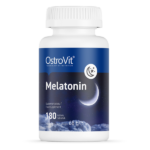Is It Safe To Take 10mg Of Melatonin Every Night?

What is melatonin?
Melatonin is a hormone that is produced by the pineal gland in the brain. Melatonin levels vary in 24-hour cycles and are controlled by our body clock. Normally, its production is reduced by being in bright light. Levels increase at night. This is why it is often called ‘the hormone of darkness. But in fact, the word melatonin itself means ‘skin whitening’. This is due to how it affects the skin in some animals. But it does not change the skin color of humans. Some plants have small amounts of melatonin as well. These include plants we use as food.
What does it do?
Melatonin appears to be important in helping regulate the internal body clock’s cycle of sleep and wakefulness. Other claims are made for it: it has anti-oxidant and free radical scavenging properties and some say it has anti-cancer and anti-aging effects, but there is no proof for this in humans. In regards to sleep, your blood melatonin level starts to go up about 2 hours before you go to sleep. It helps establish the conditions for sleep and your core body temperature to go down slightly at this time.
What can you use it for?
Melatonin is used to treat insomnia. But there are two ways that you can use it. The first is as a sedative, to make you feel sleepy. This is the most common use. The second is to help reset your internal body clock to a different time in conditions where it is out of synchrony with the time of days, such as with jet lag or advanced or delayed sleep phase syndrome. In these cases, melatonin therapy at night is often combined with Bright Light Therapy, applied in the morning (usually using outdoor light) in the case of jet lag or delayed sleep phase syndrome or in the evening (using special lights) in the case of advanced sleep phase syndrome. Recently a synthetic form of melatonin has also been developed to treat depression.
How much should you take?
Daily doses of 0.5mg to 5 mg appear similarly effective, although sleep onset may be quicker at the higher dose. There does not appear to be an advantage in taking more than this. The most commonly available preparation contains 2 mg and varying concentrations in melatonin gummies. It is in a slow-release form to last throughout the night, much like the naturally-occurring melatonin. However, the slow-release formulation does not allow a short high peak level which some argue helps with sleep onset.
Is it safe to take 10mg of melatonin every night?
No, taking 10mg of melatonin every night is not safe because it can lead to a build-up of the hormone in your blood. Taking doses of melatonin that raise [blood levels] of the hormone to up to 500 times what is normal can make the supplement stop working and can cause insomnia in some people.
According to Medical News Today, there are some clinical trials that have shown that it’s safe to take melatonin for up to three months. A 2013 study published in the British Journal of Clinical Pharmacology found that the effects of melatonin simply started to wear off on people after about three months of use.
If you take melatonin to go to sleep, the best time (for the slow release type particularly) is about an hour before you go to bed. However, some people feel a “wave” of sleepiness some 20 minutes after taking it and make the most of this by being in bed ready to sleep at this time. Avoid taking melatonin twice in one night, it is also unwise to take melatonin at 3 am unless you are experimenting. Discuss this with your prescribing doctor before choosing to do so.
You can also take it to adjust the body clock, for example when you are crossing time zones to minimize jet lag. You should take it close to the target bedtime at your destination. The benefits are greater where more time zones are crossed and for eastward flights more than westward flights.
What Are the Side Effects of Melatonin?
Melatonin is not a normal medication, but you can experience side effects if you’re sensitive to the supplement.
The upside is that the side effects of melatonin are usually mild and subside as your body adjusts.
Side effects vary, but include:
• Irritability
• Drowsiness
• Nausea
• Diarrhea
• Headache
Melatonin has also been known to exacerbate depressive symptoms and should be used with caution in those suffering from depression.
Experiencing side effects doesn’t always mean that you should stop taking melatonin. The decision to stop will depend on the severity of your side effects, and whether they improve or continue.
Of course, it’s all about tolerance, too. If you take melatonin and repeatedly experience cramps or diarrhea the next day, you might be sensitive and need to consider other options for better sleep, perhaps chamomile tea or lavender oil.
To reduce the likelihood of side effects, always start with a low dose of melatonin. Only increase your dose as needed.
Many brands of synthetic melatonin contain 5 to 10 milligrams (mg) per serving, which is more than what people often need to regulate their sleep cycle.
Some adults only need a little melatonin, while others need more. Children can typically get by with a lesser amount, too.
This doesn’t mean that you can’t take 5 or 10 mg every night, but you should discuss this with your doctor first to ensure your body can handle a larger dosage.
Also, consult with your doctor if you take any prescription medication. This includes drugs for depression and diabetes, as well as anticoagulation medication, immunosuppressants, and corticosteroids.
Melatonin can also cause an inflammatory response in the body, so the supplement isn’t an ideal choice for people who have certain autoimmune diseases.





